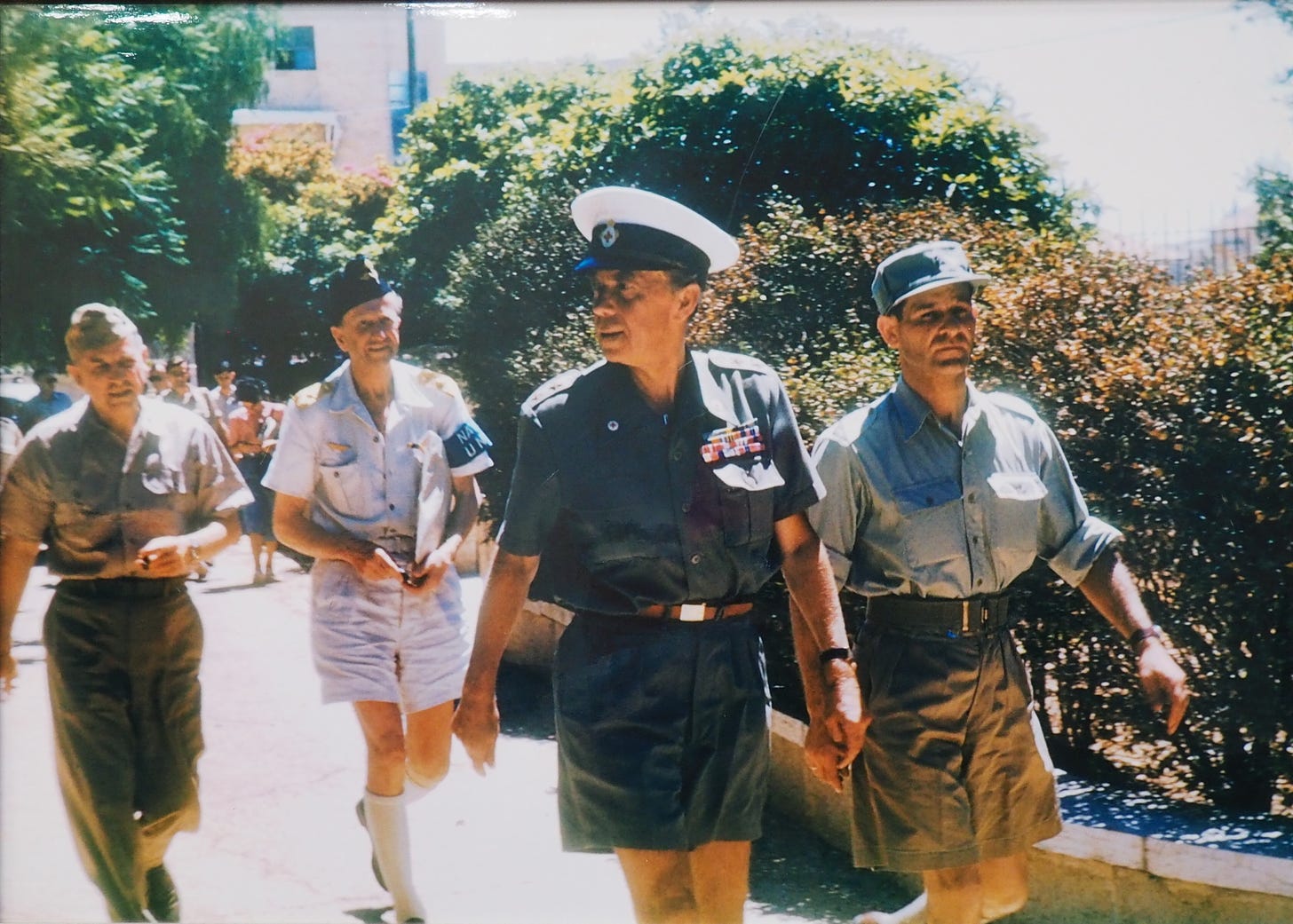DAY 174 OF THE GAZA WAR: Major Accomplishment at Shifa, Terrorist Admits to Committing Rape, High Court Takes Action To Draft Ultra-Orthodox
Tel Aviv Diary, March 28, 2024
CORRECTION: I will speak at Young Israel of Hillcrest on Monday, the 8th of April, at 8 PM, and at WJC in Mamaroneck on the 3rd of April. I will be in the States for the next 10 days. With the possible exception of Saturday nights, the diary will go out as usual; though the posting time may be a little different.
IN GAZA
Fighting continues in two main areas in Gaza today, both in Shifa Hospital in Gaza City, and in Khan Younis. Tonight, the IDF announced they had killed Raad Taabat, head of logistics for Hamas. While rank-and-file fighters can easily be replaced, leaders like Taabat, who have specialized knowledge and experience, have no immediate replacement within Hamas.
Additionally, the IDF published a video displaying the explosion of one of the longest tunnels in Gaza, which extended from the North to the South of the strip. I wonder how many more there are.
Earlier in the day, the IDF released the following report detailing the Army’s activities over the last 48 hours:
IDF forces and the Shin Bet continue targeted fighting in the area of the Shifa Hospital. Combat teams of the 401st Brigade, Nahal Brigade, and Shayetet 13 forces under the command of the 162nd Division are fighting in the area, avoiding harm to civilians, patients, medical teams, and medical equipment. Since the beginning of operations in the Shifa area, approximately 200 terrorists have been eliminated in the hospital complex.
Throughout the past day, terrorists emerged from the hospital's triage area and opened fire towards the forces operating in the hospital complex, in addition to the shooting at IDF forces from the triage area that has taken place in recent days. During the operation, the forces evacuated hostages, patients, and medical teams to alternative medical facilities prepared and established by the IDF to allow the continuation of proper medical care.
Forces of the 98th Division continue to operate in Khan Younis in the areas of Al-Amal and Al-Qarara, having eliminated dozens of terrorists in the Al-Amal area so far. The combat team of the Commando Brigade destroyed a terror infrastructure where means of warfare were found. The 7th Brigade's combat team located explosives and mortar bombs.
The combat team of the Givati Brigade identified two terrorists close to the forces; the terrorists were eliminated by aircraft and artillery fire. In addition, during scans of the area, the soldiers found numerous explosive devices.
Today, Israel’s Security Services released a video of the confession of Manar Qassem.
Qassem, who was captured by the IDF in Khan Younis earlier this month, admits he was a member of Islamic Jihad’s Naval Forces. Here are a few quotes from Qassem’s investigation:
“I took her and threw her on the couch,” Qassem told the interrogators, recalling in detail what the woman hostage looked like and what his victim was wearing.
“The devil took over me. I laid her down, started undressing her, and did what I did,” he says.
Once pressed by the interrogator as to what he did, Qassem responds by saying: “I slept with her.” When asked again, Qassem said: “I raped her. She pushed me. It didn’t last long … Two minutes. Maybe a minute and a half,” he contended.
WEST BANK
Two private civilian cars and a school bus were attacked on Route 90, which traverses the Jordan Valley. The gunmen injured no one on the school bus, but the drivers of both cars and a passenger were wounded. Regrettably, the gunman escaped.
IN THE NORTH
It was a combative day along the Lebanese border today, with multiple rockets striking the town of Shlomi, causing minor damage. Other targets in the North were hit along the border. In addition, a Hezbollah drone was intercepted close to Tzfat by the Israeli “Yahalom,” or “Diamond” system designed to down drones. I believe that this is the first time the system has been deployed in combat. Tonight, it has been reported that Israel struck Syria by air.
HOSTAGES, AN INCONCEIVABLE 174 DAYS IN CAPTIVITY….
The other day, I shared Ravid Drucker (veteran Channel 13 journalist) charge against Prime Minister Netanyahu - i.e., accusing Netanyahu of blocking or delaying a hostage deal. During the past two days, a significant number of reporters and government officials have adopted Drucker’s view. The Head of the Shin Bet has reportedly shared these concerns with the members of the War Cabinet. Tonight the Security Cabinet met to discuss the hostages.
ULTRA-ORTHODOX DRAFT
Today was a dramatic day at the High Court. Yesterday, Attorney General Gali Baharav-Miara asked the Court for a one-day extension to provide an answer as to why ultra-Orthodox young men should be exempted from the country’s universal draft and why the funding allocated for those draft-age individuals should not be halted.
Over the course of today, Baharav-Miara twice petitioned the Court for a two-hour delay on behalf of the government. Finally, when the government still had no agreed-upon plan, Baharav-Miara told the Court to prepare to draft the ultra-Orthodox youth starting on April 1.
At the very last moment, Prime Minister Netanyahu claimed (untruthfully) that a great deal of progress had been made towards reaching an agreement and requested that the Court delay its ruling for one month. The Court did not accept Netanyahu’s last-minute plea for an additional delay and in an interim ruling, ordered the freezing of all payments on April 1 to Yeshiva students eligible to be drafted. The larger panel of judges will hear this case at the end of April. Ultra-Orthodox politicians all denounced the High Court’s interim ruling. Whether this ruling will bring down the government, is still early to tell.
POLITICS
Yesh Atid had their first primary to elect a party head. Observers had expected a “North-Korea style” election, with Yair Lapid running away with a victory against his challenger Ram Ben Barak. Surprisingly, the race was tight, with Lapid ultimately gaining just 52% of the vote. Clearly, after all these years, there is a growing appetite for new leadership in the Yesh Atid party.
ENGLAND
Looking back at England, (literally, from 36,000 over the Atlantic) as I write this update, I wanted to remark on our interesting morning before heading to the airport. We walked over to the Imperial War Museum, a museum devoted to the British Army spanning from World War I until today. The museum is generally very well done — especially the section chronicling World War I — however, what surprised me when I looked at the map of the rather large building was an expansive wing devoted to the Holocaust. The narrative began with Jewish life in Europe before the Holocaust and ended with several video testimonies of survivors. This exhibition was extremely well done. The curators did not spare any details. Frankly, I was impressed and appreciatively surprised.
BUSINESS
Zafran Security, a cyber security company, revealed today (Thursday) that they had raised funds of about $30 million — of which ~$5 million was raised in a seed round in October 2022 from Cyberstarts, and $25 million in a Series A round led by Sequoia Capital. The company, which has developed software to help organizations identify and fix critical security vulnerabilities, was founded a year and a half ago by Snir Yeshar (CEO), Ben Seri (VP of Technology), and Shenir Havdalah (VP of Operations).
Yeshar is a prominent cyber researcher in the local industry with an exceptional story. She was born in Tehran during the regime of Ayatollah Khomeini and immigrated to Israel at the age of 17. Yeshar served in the IDF in cyber intelligence roles for about 15 years and was discharged with the rank of Lieutenant-Colonel. Afterwards, she worked at Cyberizen and later led cyber threat research and analysis groups at FireEye-Mandiant (which was subsequently acquired by Google). Yeshar’s story also inspired the creators of the series "Tehran" on Kan 11, in which the main character, Tamar Rabinyan, is a hacker born in Iran who served in the Mossad.
––––––∞––––––∞––––––∞––––––∞––––––∞––––––∞––––––∞––––––
A PIECE OF HISTORY
Second Ceasefire
Following Israel’s success in the ten-day campaign and even more so, due to the complete failure of the Arabs, international pressure mounted to stop the fighting. With the British at the forefront, the United Nations Security Council voted unanimously on July 12th for a ceasefire taking effect on July 15th, coupled with a warning that failure to comply would result in serious economic consequences.
The ceasefire indeed took place on July 15th, and all parties observed. Count Bernadotte, the UN mediator, had 310 military observers, in addition to 18 planes and 4 ships to supervise the ceasefire, which he hoped would transform into a permanent truce.
Bernadotte was confident in his ability to negotiate a peace agreement between the sides, as he had no problem making far-reaching proposals. At the end of the first truce, Bernadotte reflected:
The experience I had this past month strengthened my view that the resolution adopted by the General Assembly on the 29th of November 1947 was an unfortunate one… The artificial frontiers given to the Jewish state were bound to result in warlike complications.
The Count’s first proposal (referred to in an earlier entry of this Israel history), called for giving the Negev to the Arabs and the whole of Galilee to the Jews, with Jerusalem becoming an Arab city. Bernadotte had also proposed limiting Jewish immigration after the first two years.
After the second truce began, Bernadotte first returned to Sweden to rest and then met with his staff in Rhodes. At the time, he wrote,
The Jews had shown a blatant unwillingness for real cooperation, and the Arabs had asked me to leave them in peace for a few weeks to allow the popular excitement in their countries to die down.
On September 16th, Bernadotte submitted his plan to bring peace to Palestine, which had changed significantly from his earlier proposal. He noted that the Jews had established “a living, solidly entrenched, and vigorous reality”. Thus, his initial suggestion for an economic union between the Jewish and Arab states was dropped. In addition, Bernadotte proposed that Jerusalem would no longer be an Arab city, but an international city. Yet, the Negev would remain in Arab hands and Galilee in Jewish hands. Finally, Arab refugees would be allowed to return to their homes from which they fled.
The next day, in Jerusalem, as he was traveling between the Arab and Jewish sections of the city, four gunmen approached Bernadotte’s vehicle and murdered him along with another UN representative. It was widely believed that the militant Lechi group had carried out the assassination. The Israeli government arrested many of Lechi’s leaders, nevertheless, the perpetrators of Bernadotte’s assassination were never found.






Nice call out for the IWM thanks